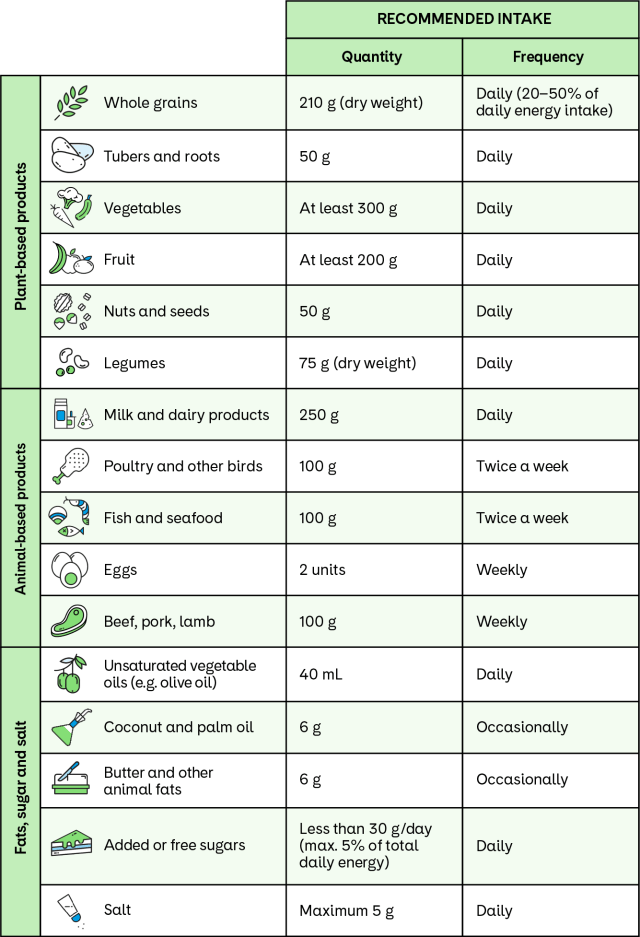The EAT–Lancet Commission, made up of international experts in nutrition, public health and sustainability, has released a report proposing a transformation in the global food system. Its goal is clear: to achieve healthy, sustainable and equitable diets that can feed the entire population without depleting the planet’s resources.
An unsustainable, unhealthy system
Every year, more than 15 million deaths could be prevented with a more balanced diet.
Excess calories, saturated fats, sugar and salt, combined with insufficient fibre, all increase the risk of cardiovascular disease, diabetes and obesity. However, the impact goes beyond individual health: the current food system is responsible for over 30% of global greenhouse gas emissions, as well as deforestation and a loss of biodiversity.
If current trends continue, by 2050 – when the planet will be home to nearly 10 billion people – it will be impossible to meet global food needs without worsening the climate crisis.
What is the Planetary Health Diet?
PHD is proposed in the report to balance two major goals: protecting human health and safeguarding the environment.
It is based mainly on minimally processed plant-based foods and limits the consumption of red meat and animal-derived products. The aim is not to eliminate any food group, but to find a balance that benefits both the body and ecosystems.
The diet also emphasises the importance of equity. Today, the richest 30% of countries are responsible for over 70% of the environmental impact associated with food production. Meanwhile, only 1% of the global population lives in a food environment that is both sustainable and fair.
If current trends continue, by 2050 – when the planet will be home to nearly 10 billion people – it will be impossible to meet global food needs without worsening the climate crisis.
EAT–Lancet Commission recommendations
The report lays out a specific roadmap for 2050. Some of the main suggestions are:
-
Reduce the number of farm animals by two-thirds.
-
Double the consumption of fruit, vegetables, legumes, nuts and seeds.
-
Halve the consumption of red meat and added sugars, especially in the wealthiest countries.
These changes would lead to a dramatic reduction in: CO₂ emissions, the use of antibiotics in livestock farming and the incidence of non-communicable chronic diseases.
A reference diet of 2,400 kcal per day would rely more on plant-based foods and less on red meat, without eliminating it entirely.







